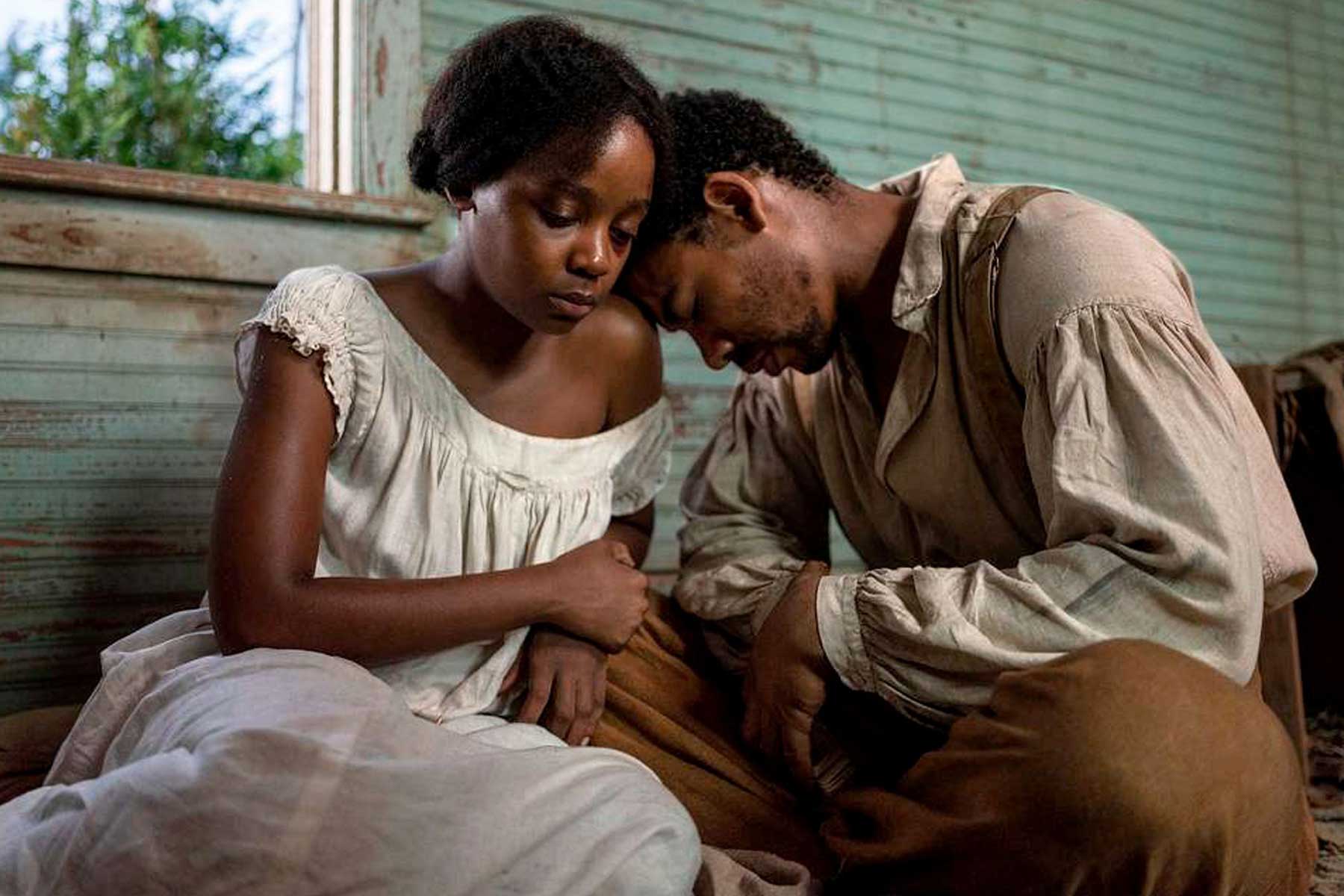In four films Barry Jenkins has established himself as a high artist of the Black American experience. Gaining heft and budget from his success with Moonlight and If Beale Street Could Talk, Jenkins signed up both Brad Pitt’s Plan B Pictures and Jeff Bezos’ Amazon to tackle one of the biggest projects on race in America, the adaptation of Colson Whitehead’s Pulitzer Prize winning 2016 novel, The Underground Railroad.
The Underground Railroad follows the runaway slave girl, Cora Randall, off the Randall Plantation in Georgia up through the Carolinas and the forest of strange fruit, through burning Tennessee and utopian Indiana pursued by Ridgeway, a bounty hunter. As Cora, Thuso Mbedu, a South African girl of 19 during filming, carries distrust in her eyes which are way too tender to bear such burden as she reads every single face.
Her very freedom is an affront to her hunter, Ridgeway, a rebuke to his doctrine, Manifest Destiny, by which it was the white European man’s right in America to take what was rightfully his by virtue of his superiority. Actor Joel Edgerton almost whips himself into speaking in tongues delivering it.
There are other great characters and performances here: Chase Dillon as Homer, Ridgeway’s little black man child accomplice, Aaron Pierre as Caesar and William Jackson Harper, as Royal, both slave men who reach Cora, Peter Mullan as Old Ridgeway, so so many utterly credible people onscreen.
The antecedent, of course, is the 1977 eight-part series of Alex Haley’s Roots on ABC, in its depiction of white barbarity—mild by the standards of the last decades’ films. Foundational as original longform television narrative, Roots connected a contemporary black writer to his pre-slavery, lost African dignity. Jenkins and the team of writers led by Jihan Crowther take aim instead at the contemporary angry whites we identify for short as Proud Boys, the angry little man who drove his car into the Black Lives Matter crowd in Charlottesville, Va four years ago, the Trump Confederacy of dunces who sacked the Capitol in January. Just so you know, there is in The Underground Railroad the anger of language. The anger of image.
While this past year’s best picture, Nomadland, did something daring by taking us inside the adrift white working-class American soul, Jenkins lines up the white ship of state from top to bottom and puts it in period costume. Chapter One’s climax ups the antebellum from whipping to immolation in front of a white garden party. Jenkins’ takes no prisoners, but his style is the majestic canvas of the plantation and its tragic people.
Moving backwards in time, Jenkins has created an expanding trilogy in look, budget and length. Again he calls on James Laxton, his cinematographer on Moonlight, which had the smallest budget, $1.5 million, to ever win best picture the year Warren Beatty inadvertently gave the Oscar to LaLa Land. Moonlight daringly scrambled current black stereotypes. Laxton also shot If Beale Street Could Talk, Jenkins’ adaptation of James Baldwin’s civil rights era novel of white on black collision. Again here we see the work of production designer Mark Friedberg and a glorious costume department. In The Underground Railroad, Jenkins makes full use of Amazon’s million dollars a day budget to pursue a survivor story.
In its politics, there are no white saviors as in 12 Years A Slave. There’s something of the doom of Judas and the Black Messiah, and the family of characters in Spike Lee’s best work. There’s no justifiable slave rebellion as in the ill-fated Nate Parker’s The Birth of A Nation, which is the question that haunts both the plantation and the gas chamber: why would so many simply look on? Because in the face of terror, we are terrified. And Jenkins is there with his sight and sound team to capture the big picture of those we lost and still lose.
In noting his tremendous feel for the landscape, The New Yorker review this week (Doreen St. Felix, May 24, 2021 issue) said Jenkins does for the antebellum South what JMW Turner did for the sea. Not quite. Jenkins does for the black witness what director Mike Leigh did for Turner in his 2014 film Mr. Turner, by seeing in his character the internal fire of angry serfdom ultimately rising to outperform the manor class busy being consumed by itself.
Like the British director Mike Leigh, Jenkins is a meticulous American artist, an auteur. Every shot counts. The Underground Railroad takes work. It is a different sort of escapist cinema, engaged filmmaking of great heart about escape. There’s a certain disjointedness to its longform narrative that one simply trusts one’s way through. There’s the confusing forward telegraphing of scenes to come at the end of Chapter One, a kind of nervous production error. There’s a moment in Chapter One, too, when Cora stops to see nothing we can see and that we don’t see until we learn more about Mabel, her lost mother, at the end.
Finally, there’s the underground railroad itself, and what you make of it, which the novel saw not as a metaphor but as something real. Jenkin’s adaptation gives it a different and lighter weight as something fantastic, more of a fabulist device for a survivor to find the way forward by what lies beneath the surface.
Jenkins’ purpose in The Underground Railroad lies just beneath the surface, too. He links the savagery of the white aristocracy and its enforcers, the white working class, in the antebellum south to its persistence into today’s headlines. There is Derek Chauvin and George Floyd here, though the film and novel predate them, the story is a perennial. There is Dante Wright, Breonna Taylor, Philando Castile, Eric Garner, Tamir Rice and on and on back through Emmet Till, and the massacre at Tulsa 100 years ago this May 31.
I urge you to see what real escapist cinema is in The Underground Railroad.


